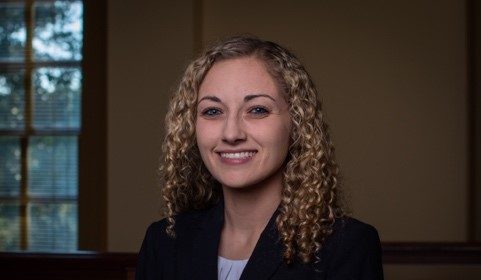Post by: Alexandria Overcash
 This semester I have the privilege of leading a project for Alliance Defending Freedom. Along with two other CGJ staff members, I am researching blasphemy and hate speech laws throughout Asia. Our ultimate goal is to provide a recommendation to Alliance Defending Freedom on how they can combat the hate speech laws within India to protect the freedom of speech. To do so, my team and I are intensely researching the current standing of hate speech law in India, other Asian countries, and within the United Nations. So far, my research has primarily focused on the current standing of hate speech law in India. Though India recognizes freedom of expression in its constitution, hate speech laws are deeply ingrained in the country’s penal code and criminal code of procedure.
This semester I have the privilege of leading a project for Alliance Defending Freedom. Along with two other CGJ staff members, I am researching blasphemy and hate speech laws throughout Asia. Our ultimate goal is to provide a recommendation to Alliance Defending Freedom on how they can combat the hate speech laws within India to protect the freedom of speech. To do so, my team and I are intensely researching the current standing of hate speech law in India, other Asian countries, and within the United Nations. So far, my research has primarily focused on the current standing of hate speech law in India. Though India recognizes freedom of expression in its constitution, hate speech laws are deeply ingrained in the country’s penal code and criminal code of procedure. Some of you may be asking, as I was when I first began this project, what exactly constitutes “hate speech.” Unfortunately, the answer to that question is not simple because countries have used the term “hate speech” in a variety of ways. In India, the term is primarily used to describe speech that disrespects someone on grounds of religion, race, place of birth, residence, language, caste or community. In India, the application of this definition extends to oral communication and written communication.
Though hate speech laws are ingrained in the penal code and criminal code of procedure in India, the Supreme Court appears to be making a shift in its understanding of what it means to protect the fundamental right of people to express themselves. In a 2014 case where a party was seeking intervention in directing the Election Commission to curb hate speeches, Justice RM Lodha stated, “We cannot curtail fundamental rights of people. It is a precious right guaranteed by the Constitution.” We are hopeful that this change in perspective continues and that the laws of India return to protecting the freedom of expression.
This post was written by a Center for Global Justice student staff member. The views expressed in this post do not necessarily reflect those of Regent University, Regent Law School, or the Center for Global Justice.
